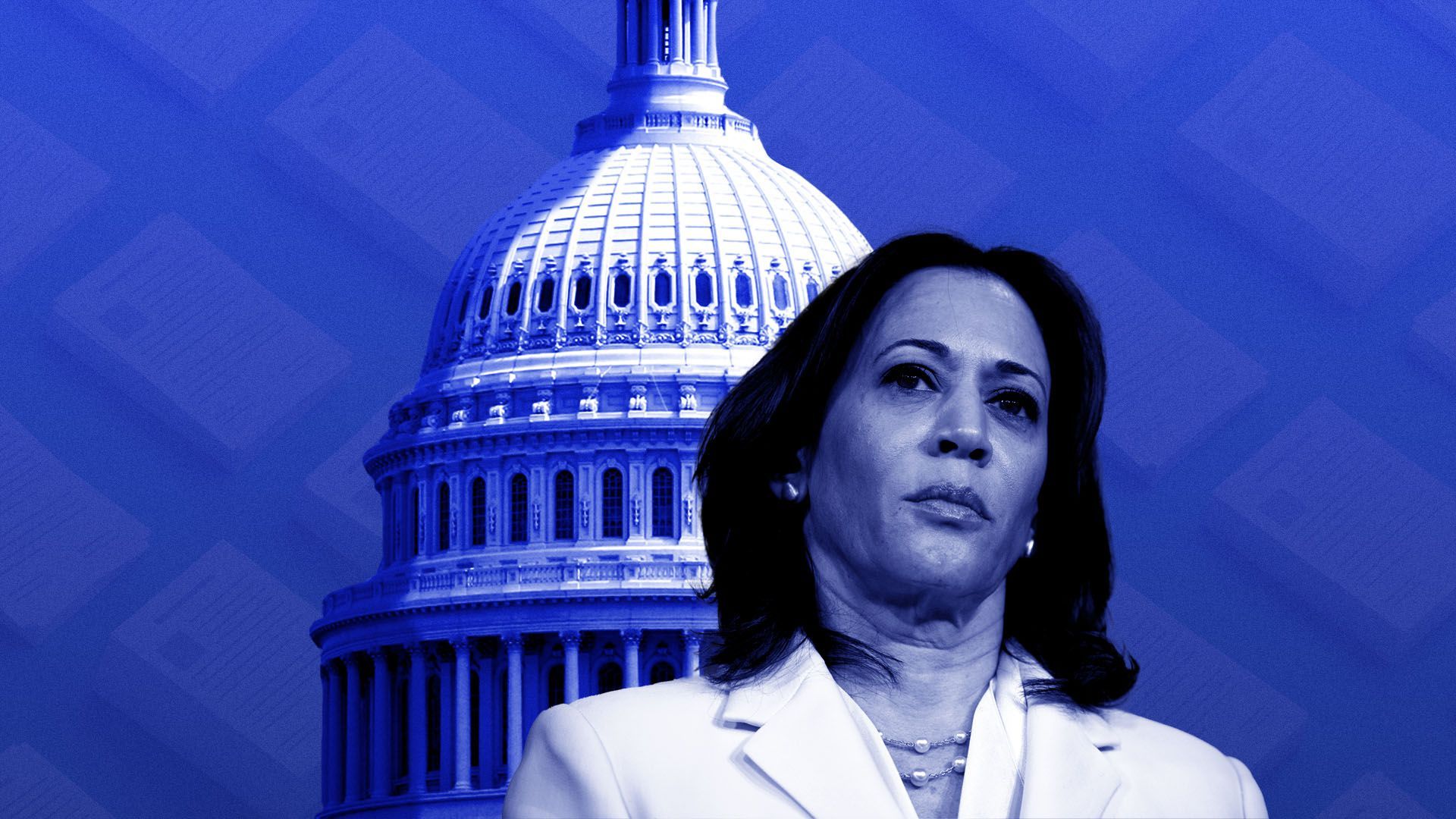Tie-breaking vote a political challenge for Harris
Add Axios as your preferred source to
see more of our stories on Google.

Photo illustration: Sarah Grillo/Axios. Photo: Tom Williams/CQ-Roll Call, Inc./Getty Images
While Democrats relish Kamala Harris' power to cast tie-breaking Senate votes in their favor, it has the potential to define her as vice president — and as a possible 2024 presidential contender.
Why it matters: As Senate president and a 51st vote for Democrats, Harris faces the prospect of weighing in on specific bills she would have avoided after leaving Congress. Her domestic and international travel — a key perk for the vice presidency — also could be inhibited by the need to remain close to Washington.
What they're saying: "That could be a game changer," said former Sen. Tom Daschle, "from the perspective of creating a political narrative down the road."
- A slim Senate majority allowed Vice President Mike Pence to cast more tie-breaking votes — 13 — than any vice president in the modern era, according to the Pew Research Center.
- One vote confirmed Betsy DeVos as education secretary. Another backed a federal judge, and a third allowed for a vote on repealing the Affordable Care Act, which ultimately failed.
- Harris will now assume the role during only the second 50-50 split Senate during the past 60 years. Congress is facing the prospect of major legislation addressing the coronavirus, comprehensive immigration reform and voting rights.
- While Harris would have a perspective on each as a member of a presidential administration, she may now have to cast roll-call votes just like she has during her four years as a senator.
While Joe Biden hasn't said he won't seek a second term, those votes would be fodder for potential Harris opponents in both the 2024 primaries and general election.
Daschle, who was both majority and minority leader in the last split Senate (during the first two years of the George W. Bush presidency), said potential tie votes are still relatively rare.
- Looking ahead, the South Dakotan predicted Democrats would unify around legislation to avoid a member voting with the Republicans, a process of conciliation with progressives and other party constituencies that would benefit Harris politically.
Harris spokesperson Sabrina Singh added that Biden's long tenure on the Senate "coupled with her relationships will strengthen the Biden-Harris administration's ability to pass bipartisan legislation."
50-50 flashback: Daschle said the fate of the upcoming Senate will be driven by the relationship between future Majority Leader Chuck Schumer and Minority Leader Mitch McConnell.
- "I had the good fortune to work with just an extraordinarily good Republican leader, Trent Lott. We became very close friends, in part because we were thrown together in that way and remain very close friends today."
- "I don't know the degree to which that relationship will exist with the two leaders today, but that will be a big factor."
Be smart: Biden has deliberately sought to avoid embarrassing Republicans aligned with President Trump, hoping to create a productive working relationship.
- He also has touted his long relationship with McConnell from their shared days in the Senate, which could smooth over any of the daily sniping occurring between him and Schumer.
